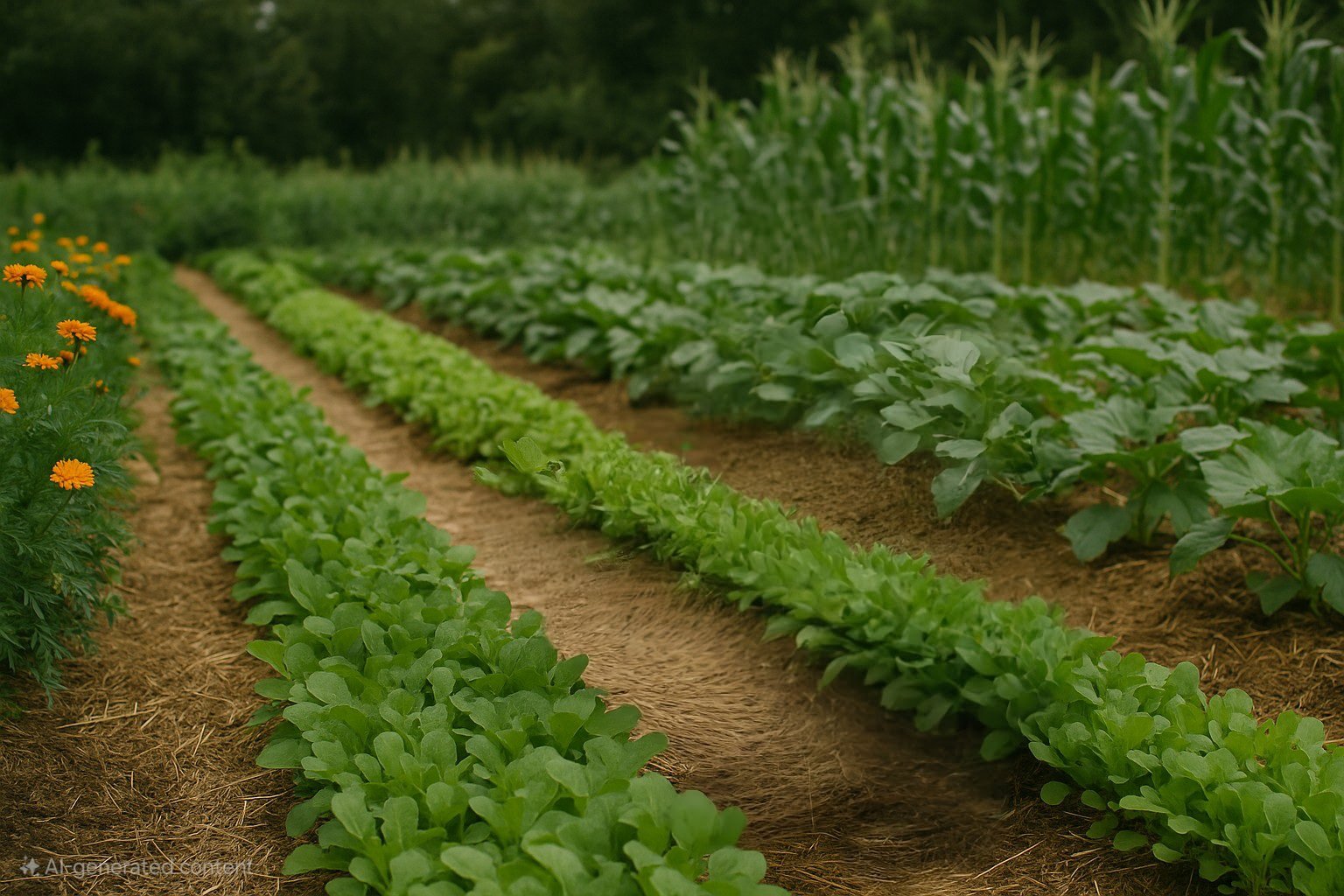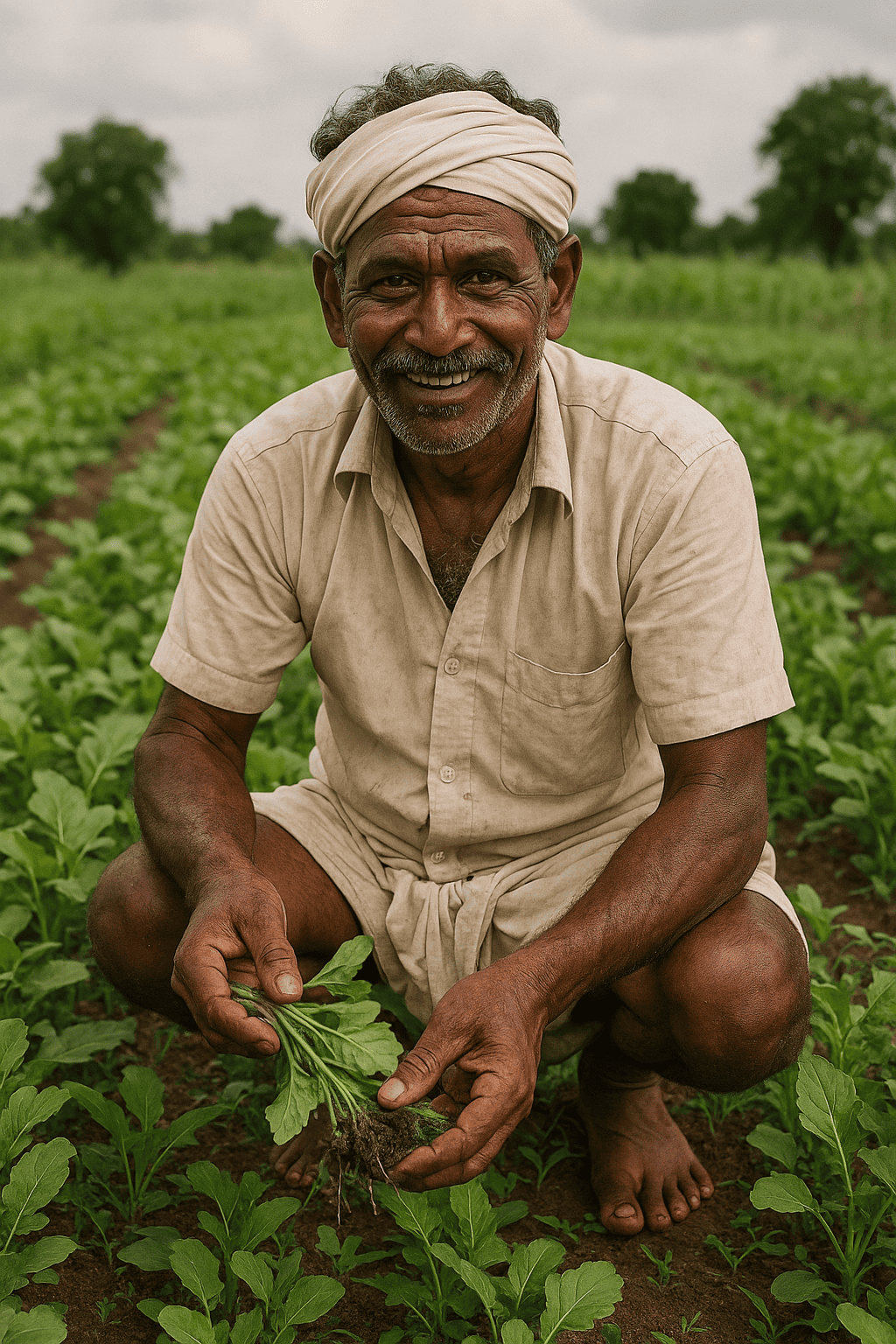Latest News
Organic Farming Without Pesticides: Can It Really budget-friendly profitable agriculture

{ Organic Farming – As people grow more concerned about food safety and environmental impact, one important question comes up: Can we practice profitable agriculture without using pesticides? The answer is yes—and with the right approach, it can even be budget-friendly for farmers and beneficial for consumers. }
In this post, we’ll explore how organic farming without pesticides is not only possible but also practical. We’ll look at real solutions, benefits, challenges, and include a helpful Q&A section to answer common questions.
What Is Organic Farming Without Pesticides?
Organic farming avoids synthetic fertilizers, GMOs, and chemical pesticides. But farming without any pesticides—whether natural or synthetic—takes things a step further. This method focuses on creating a natural ecosystem where pests are controlled through smart farming techniques, rather than external chemicals.

It’s a holistic approach rooted in traditional farming wisdom, modern science, and sustainability.
Why Choose a Pesticide-Free Approach?
Even organic-certified pesticides, while natural, can sometimes harm beneficial insects or the surrounding environment. That’s why many forward-thinking farmers are turning to truly chemical-free, budget-friendly methods that work with nature, not against it.
- No chemical residues
- Protection for pollinators and biodiversity
- Stronger long-term soil health

A dedicated organic farmer inspects his crops on a pesticide-free farm, using natural methods like companion planting and soil enrichment for sustainable agriculture.
Techniques for Budget-Friendly, Pesticide-Free Organic Farming
These tried-and-tested practices are both cost-effective and environmentally sound, making them ideal for small-scale and growing farms:
- Companion Planting
Planting basil near tomatoes or marigolds near vegetables helps repel pests naturally.
- Crop Rotation
Changing what you grow each season keeps pests and diseases guessing—cutting down on infestations without spending on sprays.
- Cover Crops & Mulching
Low-cost cover crops improve soil and suppress weeds, while mulching reduces water loss and prevents pest buildup.
- Beneficial Insects
Introducing ladybugs or parasitic wasps can reduce aphids and other pests—naturally and without extra cost.
- Neem and Plant-Based Deterrents
While technically not pesticides in large volumes, homemade neem sprays or garlic infusions can deter insects affordably, and without synthetic residues.
- Soil Enrichment Through Compost
Composting kitchen and farm waste enhances soil quality, reducing the need for external inputs—making this approach both profitable and sustainable.
Is Pesticide-Free Farming Profitable?
Yes—if done thoughtfully. While initial yields might be lower, reduced input costs, healthier soil, and premium market value make it a solid long-term strategy for profitable agriculture. Consumers are willing to pay more for food that’s free from harmful chemicals, making it easier for small and mid-sized farms to thrive.
Q&A: Common Questions About Organic Farming Without Pesticides
Q: Can you grow organic crops completely without using any pesticides?
A: Yes, organic crops can be grown without any pesticides—natural or synthetic—by using ecosystem-based methods like crop rotation, companion planting, and natural pest predators. The key is prevention, not reaction.
Q: Is organic farming without pesticides really budget-friendly?
A: Definitely. Organic farming without pesticides saves money on inputs like sprays and chemical fertilizers. Most techniques rely on local, low-cost resources like compost, natural deterrents, and good planning, making it budget-friendly especially for small and medium farms.
Q: Is pesticide-free organic farming suitable for small-scale or backyard farmers?
A: Absolutely. Small-scale organic farms and backyard gardens can implement pesticide-free methods more easily because they can monitor their crops closely and make adjustments quickly without heavy investment.
Q: Do organic farms without pesticides still deal with insects and pests?
A: Yes, all farms do—but organic farms focus on balancing pest populations rather than eliminating them. Natural pest predators, healthy soil, and diverse crops all help keep pests at manageable levels.
Q: Can organic farming without pesticides still be profitable?
A: Yes. With growing consumer demand for chemical-free produce, many farmers find that organic, pesticide-free farming allows them to charge premium prices. Lower input costs and healthier soil also contribute to long-term profitability.
Q: How do organic farmers manage pest outbreaks without any sprays?
A: Organic farmers use a mix of strategies like releasing beneficial insects, altering planting times, using netting or physical barriers, and applying homemade botanical extracts (like neem or garlic). These are low-cost, natural, and effective ways to maintain plant health.
Conclusion
Organic farming without pesticides may sound idealistic, but it’s grounded in practical, time-tested strategies. It’s a model that supports budget-friendly and profitable agriculture, nurtures the earth, and produces food that’s better for everyone.
By choosing natural methods over chemical shortcuts, farmers invest in long-term soil health, biodiversity, and consumer trust.





















